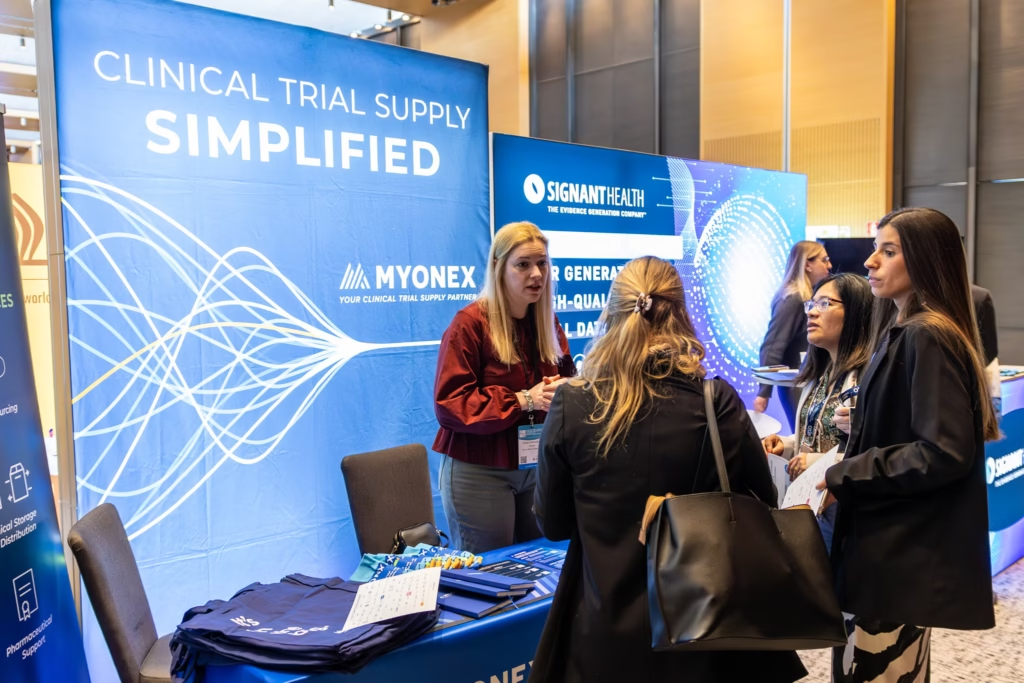The 26th Clinical Trial Supply Europe conference (25–26 February, Barcelona) will showcase how AI, logistics innovation, and regulatory alignment are shaping the future of clinical trial planning and delivery across Europe.
The 26th Clinical Trial Supply Europe conference (25–26 February, Barcelona) will showcase how AI, logistics innovation, and regulatory alignment are shaping the future of clinical trial planning and delivery across Europe.

The clinical research ecosystem is entering an era where trial efficiency depends as much on operational resilience and digital innovation as on scientific discovery. Nowhere will this be clearer than at the upcoming Clinical Trial Supply Europe 2025, set for 25–26 February in Barcelona.
Now in its 26th year, the event brings together an impressive roster of speakers from Boehringer Ingelheim, Roche, Dr. Reddy’s Laboratories, Novartis, and regulators across Europe, alongside CROs, vendors, and technology partners. Their goal: to confront the mounting pressures of trial globalization, logistical volatility, and patient-centric delivery models.
Artificial Intelligence at the Core of Supply Chain Transformation
A central theme of this year’s conference is the integration of AI into supply chain design and execution. Sessions will showcase how machine learning is being deployed to:
According to panel previews, AI-driven solutions are moving beyond pilot projects and beginning to embed themselves in mainstream trial planning. For sponsors, this means not just efficiency gains but also improved patient safety—since timely supply translates to uninterrupted treatment cycles.
Crisis Readiness: Lessons from Recent Supply Shocks
The conference will also tackle the continuing ripple effects of recent global crises—from the COVID-19 pandemic to the Russia–Ukraine conflict—that exposed vulnerabilities in trial supply chains.
A major focus will be on implementing the European Medicines Agency’s Medicines Shortage Steering Group (MSSG) solidarity mechanisms. These guidelines, launched to ensure equitable distribution of medicines during shortages, are now being adapted to clinical trial settings. By aligning sponsors, regulators, and distributors, the hope is to minimize disruptions to ongoing studies even during crises.
Case studies will highlight how CROs and sponsors diversified suppliers, restructured regional storage hubs, and leveraged decentralized clinical trial (DCT) models to protect patient access during turbulent times.
Good Distribution Practice Meets Green Imperatives
Another major discussion stream centers on sustainability. With environmental stewardship becoming a corporate and regulatory imperative, the conference will explore how Good Distribution Practice (GDP) can align with green logistics goals.
Topics include:
Industry leaders are expected to stress that sustainability is no longer a secondary objective—it is now a driver of investor confidence, corporate reputation, and trial site partnerships.
Patient-Centric Trial Supply
As trials decentralize and expand to more diverse geographies, ensuring direct-to-patient delivery is becoming crucial. Several sessions will spotlight innovations in:
Such models are expected to improve recruitment and retention, particularly for rare disease and pediatric studies where patient burden has historically been high.
Networking and Strategic Opportunities
Beyond the formal agenda, the Barcelona meeting is also a high-value networking hub. Sponsors and CROs will use the event to:
This collaborative dimension is particularly valuable as trials become more globalized and stakeholders seek harmonized standards across regions.
Conclusion
The Clinical Trial Supply Europe 2025 conference arrives at a pivotal time. With AI reshaping logistics, sustainability moving center stage, and regulators pressing for crisis-ready resilience, the event will help chart a roadmap for the next decade of clinical trial operations.
As stakeholders gather in Barcelona, one message is clear: the future of clinical research depends not only on drug innovation but also on the strength, intelligence, and adaptability of the supply chains that deliver it.
Keep in touch with our news & offers